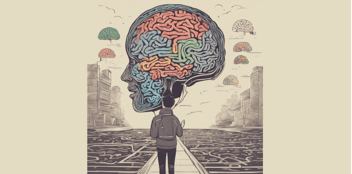Harnessing the power of AI at Potomac Psychiatry: transforming holistic patient care with advanced diagnostic insights
- Home
- Blog

My Dear Reader,
At Potomac Psychiatry, we are dedicated to pushing the boundaries of mental health care by integrating cutting-edge technology into our practice. Our latest innovation, an AI Agent developed in-house and trained on Root Cause Psychiatry™, has revolutionized how we approach the treatment of highly complex patients who suffer from chronic mental health concerns. It helps us advance our mission - “Whatever It Takes to Help You Feel Well and Recover Your Health.” Our AI tool allows us to input multiple datapoints such as genetic information and blood and stool biomarkers, providing a comprehensive analysis that guides our diagnostic testing and treatment plans. Let me share some remarkable examples of how this AI Agent has assisted me in treating complex patients.
The power of AI in holistic psychiatric care of the treatment resistant patient
Our AI Agent is designed to process vast amounts of data in support of our holistic psychiatry approach, offering insights that might not be immediately apparent through traditional methods. By considering genetic markers, biomarkers, and other critical data points, it helps us identify underlying issues and suggest diagnostic tests and treatment options that can significantly improve patient outcomes.
Case 1: unraveling the mystery of dysregulated cortisol levels
A young adult patient presented with chronic depression, fatigue, and immune system dysregulation. Their cortisol levels were low during the day and high at night, leading to low energy levels in the daytime and increased energy at night, mirroring their cortisol patterns. This abnormal cortisol rhythm was contributing to their debilitating symptoms.
I consulted our AI Agent to explore potential causes and recommend diagnostic tests. The conversation with the AI Agent provided invaluable insights into potential underlying issues, such as adrenal insufficiency or circadian rhythm disorders, and suggested specific tests to confirm the diagnosis. By following these recommendations, we were able to pinpoint the problem and tailor a treatment plan that significantly improved the patient’s quality of life. Here is the conversation I had with the Agent, who even provided me scientific journal articles to support the veracity of their answers.
.png?width=850&height=873&name=1%20(11).png)
.png?width=850&height=884&name=2%20(10).png)
Case 2: optimizing treatment for bipolar disorder with multiple comorbidities
Another patient with a complex medical history, including bipolar disorder, multiple sclerosis, and chronic pain, was struggling with bipolar depression. Although she was responding somewhat to ketamine, we needed to switch her mood stabilizer to one that would interfere less with the ketamine's effectiveness so that she could have more of a boost in her mood.
I turned to our AI Agent for guidance on choosing between two mood stabilizers. The Agent analyzed the patient’s medical history, current treatments, and potential interactions. Based on this comprehensive analysis, the AI recommended a mood stabilizer that was less likely to interfere with ketamine, and more likely to make the ketamine effective in helping her depression. Remarkably, the patient’s response to the new treatment regimen was outstanding. She experienced improved mood stability, increased energy, and enhanced responsiveness to ketamine. Here is the conversation I had with our AI Agent.
.png?width=850&height=951&name=3%20(3).png)
Case 3: revolutionizing elderly care with AI insights
At Potomac Psychiatry, we continually seek innovative ways to enhance our patient care, especially for our most vulnerable populations. One such instance involved an elderly patient in their eighties who was suffering from depression and cognitive impairment, compounded by kidney failure. This complex case required careful consideration of treatment options to avoid exacerbating the patient’s kidney condition, and choose medications that are not “cleared” (removed from the bloodstream) by the kidneys. Failure to consider these factors in making a decision could lead to serious side effects or adverse events from choosing the wrong medication.
I turned to our AI Agent to evaluate whether a specific antidepressant, which I was considering for this patient as the one that I believed would be the best choice given his history and current symptoms, and asked if it would be safe to prescribe given their kidney failure. The AI Agent meticulously analyzed how the medication was eliminated from the body. It provided detailed insights indicating that the medication was primarily eliminated by the liver and was not eliminated by the kidneys, and that therefore it could be prescribed at the usual dose. This tailored approach not only improved the patient’s depressive symptoms but also protected their remaining kidney function, demonstrating the critical role our AI technology plays in delivering personalized, safe, and effective care. Here is the conversation I had with our AI Agent.
.png?width=850&height=1166&name=4%20(3).png)
Conclusion: AI as a game-changer in holistic psychiatry
These examples highlight the transformative impact our AI Agent has had on patient care at Potomac Psychiatry. By leveraging advanced AI technology, we can offer more precise diagnostics and effective treatments, ultimately improving outcomes for our patients. The integration of AI into our practice exemplifies our commitment to continuous innovation and excellence in mental healthcare.
.png?width=144&height=144&name=Untitled%20design%20(34).png)



